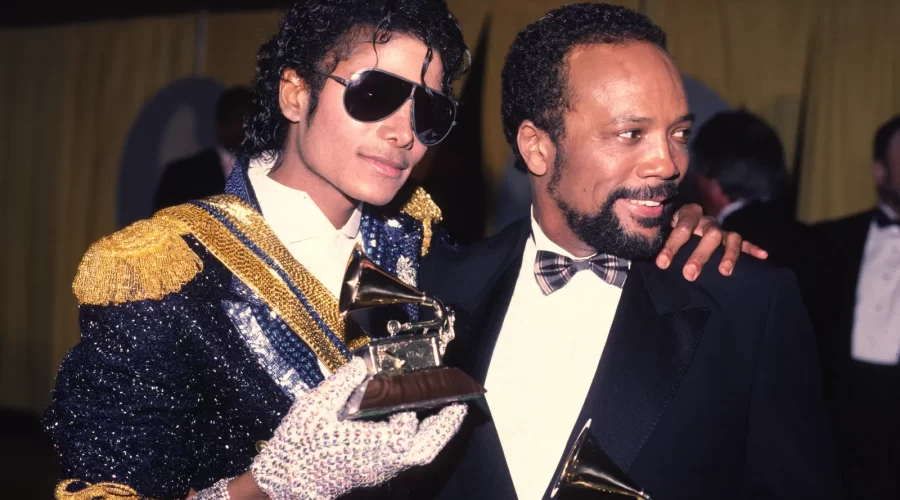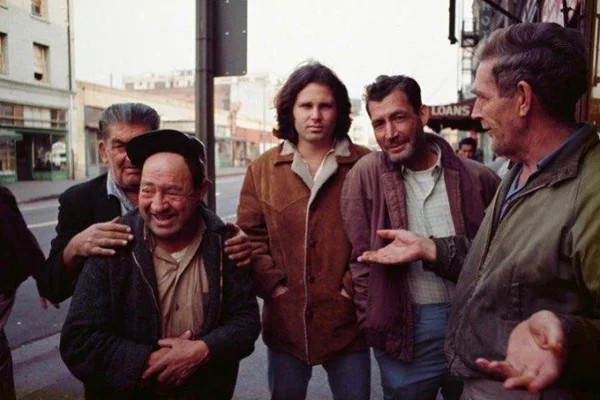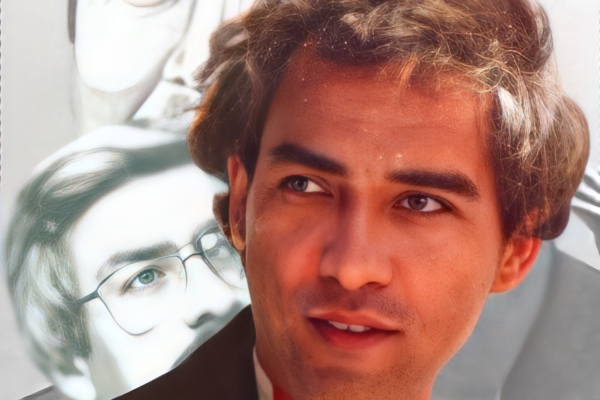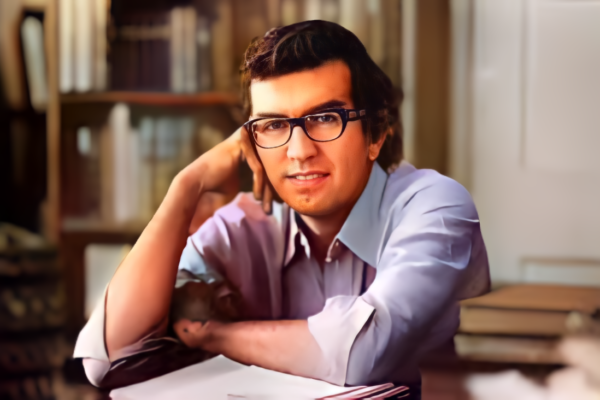Quincy Jones was more than a musician or a producer. He was a bridge between worlds. He wasn’t just a part of American culture; he was a shaper of it.
I only met Quincy Jones once, and even then, barely. It was one of those surreal nights that stands out like a bright flare in memory, a flash of music and glamour and unexpected history.
Early in 1983, my friend Patricia Casado called to say she needed a date for her friend, one of her best friends, and would I fill in? I had just started seeing Renee—the woman I’d eventually marry—and I could already tell I’d be marrying up. But Patricia insisted, and soon I found myself joining a group headed for the 25th anniversary of Motown, being filmed at the Pasadena Civic Auditorium.

It was one of those nights where, from the start, you can feel something unforgettable is about to happen. The energy was palpable, and the night was as formal as a royal gala. I had no idea who’d be there, but this was Motown’s 25th anniversary—how could I resist?
The world had changed in no small part because of the music coming from Hitsville, U.S.A. It wasn’t just a record label; it was a movement, a tidal wave of rhythm and soul that had brought a divided country to its feet. That night was about honoring that legacy and all the people behind it. But I had no idea that, decades later, the whole world would remember it for something else.
Michael Jackson’s “Billie Jean” was the set’s headliner, and we all watched, enraptured, as he took the stage with his characteristic magnetism. But when he unleashed the moonwalk, the whole room changed. The Pasadena Civic Auditorium erupted with excitement—a new era of pop performance had just been born in front of us. The show was long, lasting well past midnight, and by the end, everyone was still buzzing about Michael, his electrifying moves, that gravity-defying dance. It was one of those “where were you when…” moments.
After the taping, we crossed the street to a massive hall set up for a post-show dinner. You could feel the buzz of the night, and everyone was talking about Michael. I wandered around, doing what reporters do—floating, listening to the chatter. And that’s when I saw him, not more than a few feet away: Quincy Jones. Even then, he was a name that carried the weight of something monumental. He had worked with everyone: Sinatra, Ray Charles, Count Basie. His sound was unmistakable. And though he hadn’t yet been anointed with the “legend” status he holds today, it was clear he was headed for it.
Now, I wish I could tell you that I had some profound, insightful conversation with Quincy that night, a magical exchange where we connected, and he imparted the secrets of his genius. But the truth is, I walked up to him, and it was all a bit of a blur. “Mr. Jones,” I said, feeling out of my depth, “congratulations on the evening. I just wanted to say hello and tell you how wonderful I believe your music and your arrangements happen to be.” Quincy, with that generous, infectious smile of his, thanked me. I was sure that, to him, it was just another polite gesture from a well-meaning guy in the crowd.
And then, just as quickly, I felt a tap on my shoulder. It was Berry Gordy, founder of Motown himself, looking at me with that subtle, knowing expression, like he was saying, “Young man, you’ve had your fifteen seconds with Quincy. Move along.” I smiled, thanked Quincy again, and stepped back into the crowd, knowing I had brushed greatness, however briefly.
It was just a brief encounter, barely an introduction, and yet, I think that fifteen seconds with Quincy was worth hours with anyone else. When you’re standing next to someone with a mind like his—a true artist who not only plays the game but has rewritten its rules—you feel the enormity of their influence in a way words fail to capture. Quincy Jones was more than a musician or a producer. He was a bridge between worlds. He wasn’t just a part of American culture; he was a shaper of it.
Quincy would go on to produce Thriller that year, an album that became a phenomenon, a record that crossed every imaginable boundary, turning Michael Jackson into a global superstar. The moonwalk wasn’t just a dance step—it was a piece of choreography that would ripple through generations, an artistic breakthrough as memorable as any of the songs Quincy helped to create.
Quincy’s career spanned genres and generations. From jazz and bebop to R&B and pop, from TV themes to film scores, he brought heart and soul to everything he touched. He could see potential in artists, sometimes more than they saw in themselves. And he wasn’t just a producer—he was a teacher, a guide, a visionary. He understood music as a universal language, a force that could bring people together, inspire, and transform.
Over the years, I would hear stories about Quincy, his warmth, his sense of humor, his effortless genius. And as I followed his career, I watched as he earned every accolade that came his way. From Grammy Awards to the Rock and Roll Hall of Fame, Quincy Jones became a living testament to the power of creativity. He broke barriers, not just in music but in the industry itself. He opened doors for so many artists of color, insisting that talent knew no boundaries.
But perhaps what stands out most about Quincy was his belief in the human spirit. Music wasn’t just about fame or fortune to him; it was about connection, about reaching into the soul and pulling something out that others could feel. He understood that the right note, the perfect melody, could change the course of a person’s life.
Now, with his passing, it feels like the end of an era. Quincy Jones wasn’t just a composer, an arranger, or a producer—he was a light. He shone brightly, illuminating the lives of those around him, and that light still radiates in the music he left behind. Quincy touched millions without ever meeting them, offering them solace, joy, and inspiration through his creations. And for those of us who were lucky enough to meet him, even for fifteen seconds, he left a mark that will never fade.
Quincy Jones, who died Sunday, will be missed by the world. For some, he was a mentor, for others, an idol, and for a lucky few, a friend. But for all of us, he was a gift—a rare, brilliant soul whose legacy will endure long after the music fades.
TONY CASTRO, the former award-winning Los Angeles columnist and author, is a writer-at-large and the national political writer for LAMonthly. org. He is the author of the forthcoming novel The Book of Marilyn. He can be reached at tony@tonycastro.com.





